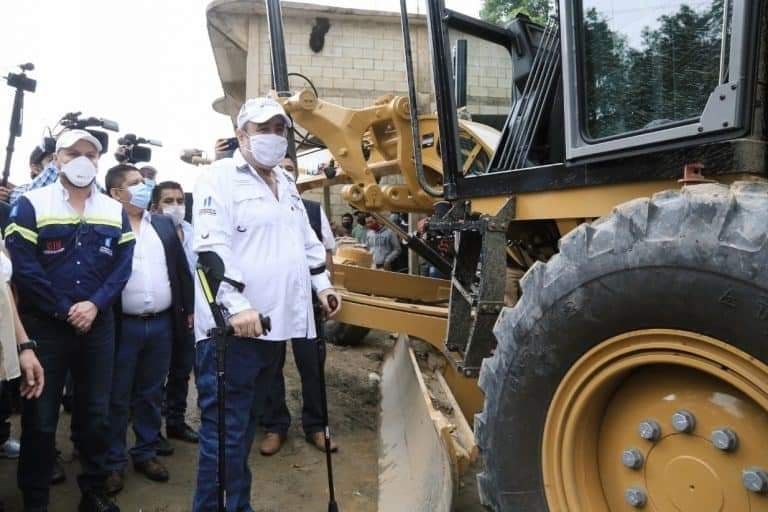
After a short break in the updates, we're happy to report that Guatemala's surge in infections has started to abate. Huehuetenango's rate of new infections decreased precipitously over the last two weeks. We hope this is a beginning of a more manageable situation across the country.
In other new beginnings, Guatemala's president, Alejandro Giammattei, paid a visit to San Pedro Necta in Huehuetenango this week. He announced Q500 million in new infrastructure projects across Huehuetenango. Along with this announcement, the president launched a project using Q53.3 million of these funds to improve the roads around San Pedro Necta.
Local leaders hope these promises of development are fulfilled by the new president. It's not been unusual for such projects to be left undone in the past. Please continue to keep all the communities of Huehuetenango in your prayers.
Coronavirus in Guatemala by the Numbers
26658 confirmed cases in Guatemala
21767 active cases
1092 deaths
3797 recuperated
2045 confirmed cases in Region 2 (Western Guatemala including Huehuetenango)
135 confirmed cases in Huehuetenango
Diocesan Staff in Huehuetenango Return to Work
Many of the staff who serve as our hosts during our trips to Huehuetenango had been furloughed since the end of March. Most returned to work last week, even though many diocesan services remain closed. The Diocese continues to face financial challenges being unable to collect contributions from parish communities without holding public masses.
Despite these challenges, the Church remains the best source of hope and help in communities across Huehuetenango. Ixim will continue to look for ways to support the Church in Huehuetenango as they find ways to overcome the difficulties of this extraordinary moment.
Guatemalan Hospitals Overrun with Patients
One result of the past month of sharp increases in infections in Guatemala is a sharp increase in the number of those seeking treatment. The Guatemalan medical system has met its limitations as cases increase across the country. Presumptive cases are asked to go to several regional hospitals across the country in order to be isolated while they await treatment. These hospitals became overcrowded over the last couple weeks with patients sleeping on benches for two-to-four days as they wait to be seen by healthcare professionals.
Guatemala now stands at a critical juncture in which further increases in the growth of infections will be extremely difficult to handle for the healthcare system. For this reason, Guatemala remains under curfew with travel restrictions across the country and mandatory masks orders.
